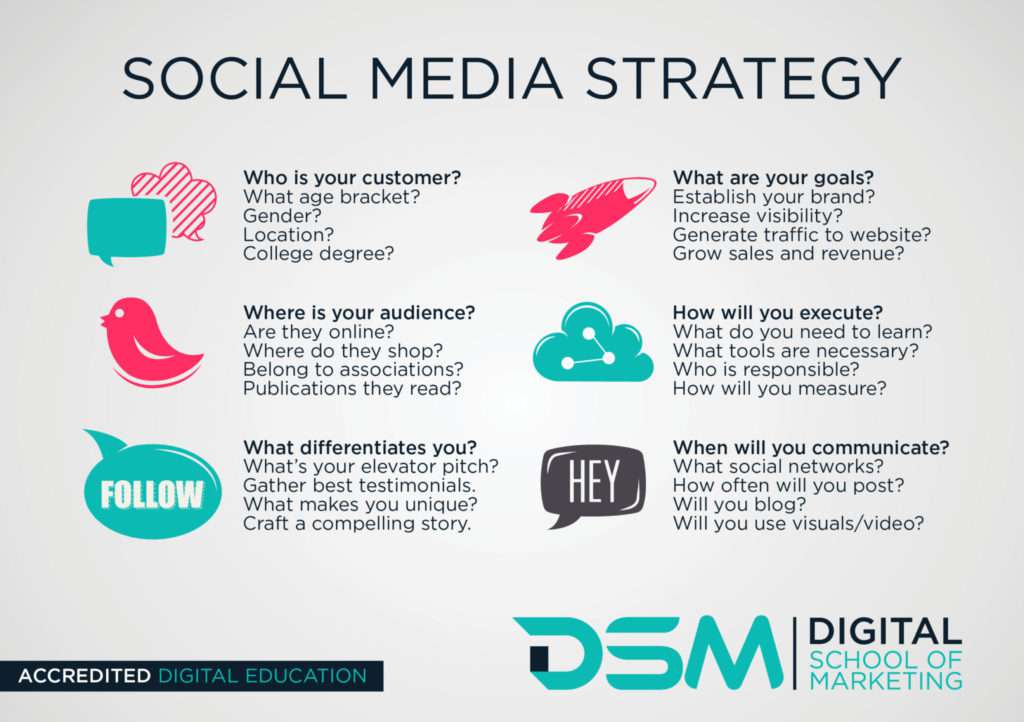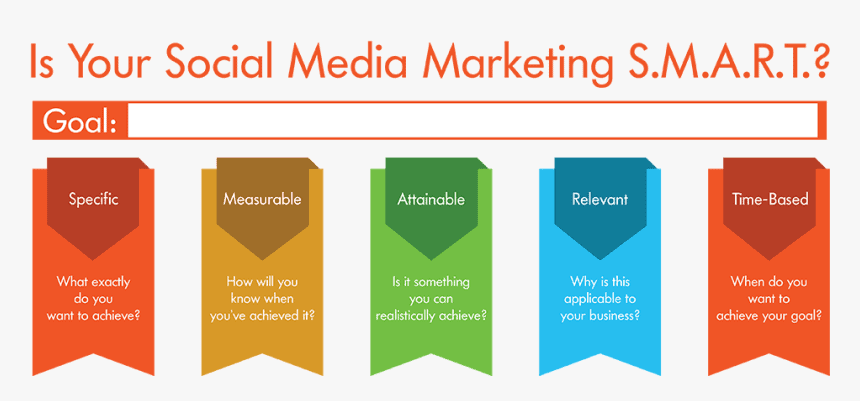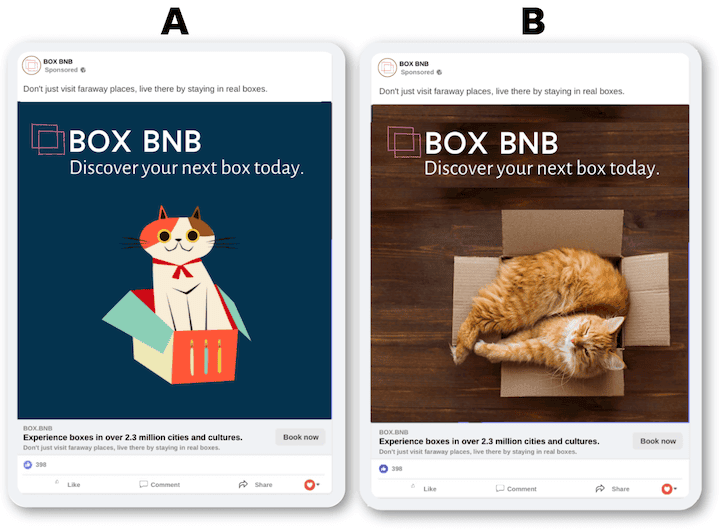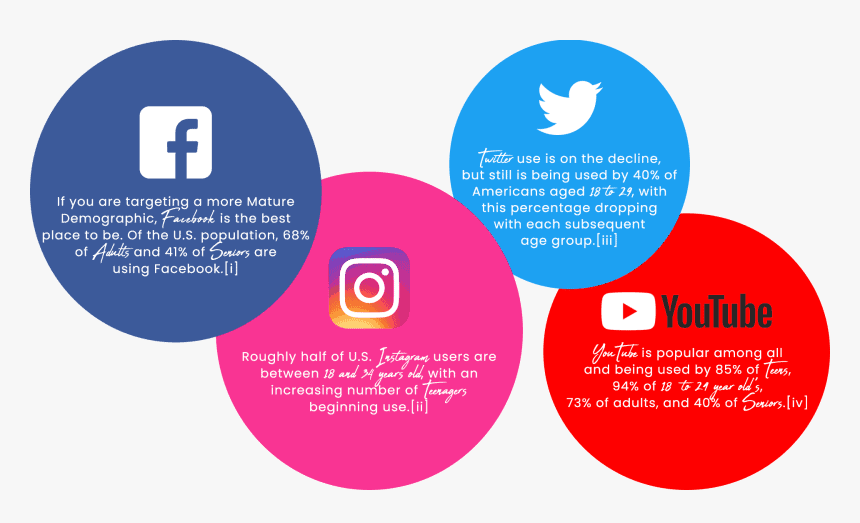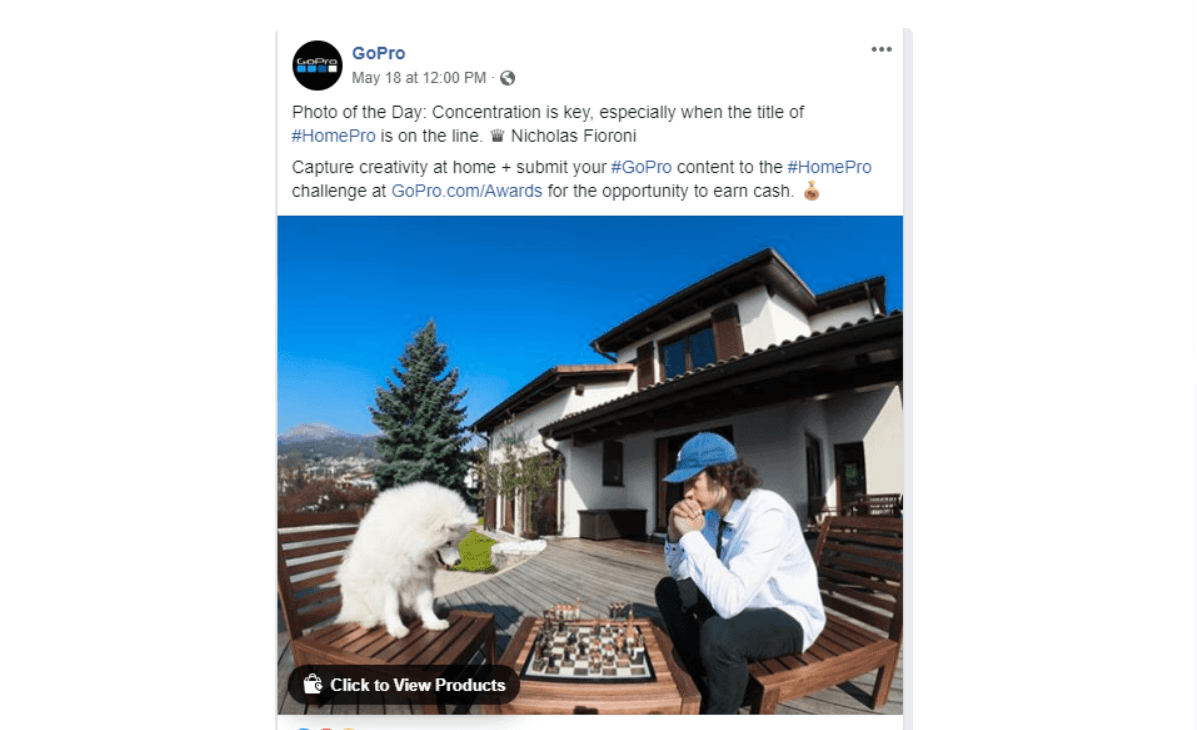In today’s digital age, social media has become a powerful marketing tool for small business owners to reach and engage with their audience. In fact, a recent survey shows 63% of marketers use social media for these reasons. With this rising popularity, it’s important to implement social media strategies for small businesses to stay on top of the game.
However, it can be overwhelming with so many platforms and strategies to choose from. In this article, we’ll provide you with all the insights and tools you need to establish a strong online social media presence and achieve your marketing goals.
By the end, you’ll know how to use social media effectively to grow and turn your business into a money-making machine. So, let’s begin.
What Is A Social Media Marketing Strategy?
Essentially, a social media marketing strategy is a roadmap for how you can leverage social platforms (like Facebook, Instagram, or Twitter) to promote your products and services.
With the right strategy, you can use social media to reach many potential customers without spending much money on traditional marketing channels. So, how can you create an effective strategy that drives growth? Here are a few pointers that we will be elaborating on later:
- Engaging with followers
- Defining your target audience
- Creating and distributing content
- Selecting the right social media platforms
- Measuring performance to make improvements
Overall, having a well-crafted social media marketing strategy will help you achieve your marketing goals much more efficiently while also helping you stay ahead of the competition.
With this in mind, let’s explore how you can rev up your small business with these social media strategies.
7 Best Most Effective Social Media Strategies
From collaborating with influencers to engaging with your followers, these tried and tested strategies can help your business increase brand awareness and conversions on social media.
1. Set SMART Goals
SMART goals provide a framework for decision-making and give your business clarity and direction. Hence, setting SMART goals is foremost to help you stay on track and start your marketing success.
Essentially, SMART goals stand for goals that are Specific, Measurable, Achievable, Relevant & Time-bound and are used to guide and measure progress toward a desired outcome.
Here are a few examples of how you can set SMART goals as a small business owner:
- Identify the specific social media platforms you want to focus on, such as Facebook, Instagram, or Linkedin.
- Set measurable goals like increasing your social media followers by 45% or improving your engagement rate by 10%.
- Make sure your goal is achievable based on your current resources and capabilities. For example, if you’re a one-person business, it might not be realistic to post on social media 5 times per day.
- Ensure that your goal is relevant to your overall business objectives. If you plan to increase your online sales, your goals would be focused on driving traffic to your website. On the other hand, if your company is looking to improve employee engagement and retention, your goal would be to highlight their accomplishments on social media rather than promote your brand.
- Set a specific timeframe for achieving your goal, such as increasing your social media followers by 20% within the next six months.
Overall, setting SMART goals like this provides a structured and realistic way to achieve your marketing objectives and optimize your strategies for success.
2. Develop A Content Strategy
A content strategy includes planning, creating, and distributing valuable content to attract and retain your audience on social channels. Developing a content strategy is crucial to ensure your content is aligned with your business goals to meet your audience’s needs and interests.
Developing a well-crafted content strategy for social media marketing involves several critical factors, including
Audience Research
Understanding your customer base is crucial to help you create content that resonates with their interests and needs. This can include gathering insights and data such as demographics, interests, behaviors, and any pain points of your target audience, which can all help inform content creation and help in distribution decisions.
Content Types
Content types include images, blog posts, and videos on social media platforms that you leverage to engage with your audience and help achieve content goals. With the rise in the popularity of podcasts, many social media platforms now support audio content as well. You can leverage this trend by creating your own podcasts to engage your audience. For businesses seeking professional assistance, investing in podcast marketing services can help amplify reach and ensure content aligns with audience preferences.
The key factor is choosing the right types of content that fit your brand’s voice and objectives while resonating with your target audience.
For instance, a company that reviews top luxury hotel destinations would focus more on creating text-based and visual content for social media. More specifically, the content would be more informative and descriptive to provide insights into the world’s most luxurious hotels and resorts.
On the other hand, a streetwear brand specializing in urban fashion and street culture would focus more on creating edgy and creative content to engage its audience of young adults. Hence, they might include more visual and video content, such as high-quality pictures and videos featuring models wearing the latest collection in an urban setting.
Content Themes
Selecting content themes can help keep your content more consistent and on-brand. Your theme could be a specific subject or topic your brand chooses to focus on or a broad one relevant to your brand’s industry or “niche.”
Take, for example, a cleaning business academy. The content theme for this could be “starting a cleaning business” to help align with the company’s mission of providing tips and advice on how to start and run a successful cleaning business.
Hence, the company could create social media content around this theme, such as “how to create a cleaning business plan” or “how to price your cleaning services for maximum profit.” This way, the company can position itself as an expert in the cleaning business industry and attract potential customers interested in starting their own cleaning business.
Overall, a content theme like this can help establish your brand identity, attract and retain its target audience, and ultimately help achieve your social media goals.
Content Creation Process
The process of creating and publishing your content should maintain consistency and quality across all your channels to effectively reach your target audience. With the help of content calendars, you can plan your content schedule this way and ensure your content is distributed on time.
You can also include a content approval process to help ensure your content aligns with your quality standards and reduce errors.
3. Leverage Social Media Advertising
You can leverage social media to display your ads on platforms like Facebook, Instagram, Twitter, and LinkedIn and connect with your desired audiences through targeted advertising.
Most importantly, this allows you to reach more active users than through organic posts while having better control over who sees your ads and how they engage with them.
You can leverage different types of social media ads, such as image, video, and carousel ads. However, to maximize the potential of your social media strategy, consider the following 3 things:
Define Your Target Audience
To create effective ads, understand your target audience clearly. This will help you choose the right social media platform, ad format, messaging, and targeting options.
An excellent example of this is a software company that specializes in providing help desk solutions for Shopify. In this case, the target audience would be Shopify owners who are interested in improving their customer service.
With this information, ReplyDesk can create targeted ads on Facebook, as it has a large and diverse number of active users, including many Shopify owners. The platform also offers a robust set of targeting options that can help ReplyDesk reach its ideal audience.
Finally, the company can consider using both carousel and video ads to showcase multiple features of ReplyDesk’s helpdesk solution, which can effectively demonstrate its capabilities.
Overall, defining your target audience this way is crucial because it helps reach the right people with your message and increases the effectiveness of your advertising efforts. Remember that the right platform and ad format would also depend on your company’s specific goals and target audience.
Platform Selection
Each platform has its own strengths and weaknesses, so choose the platforms that align with your business goals and target audience. For instance, if you have a B2B company and want to reach professionals and decision-makers, Linkedin may be your best platform.
On the other hand, if your target audience is more fashion-forward and visually driven, you might consider advertising on Instagram, which is known for its high-quality image and video ads.
Ad Copy & Visuals
Essentially, your ads should be straightforward and easy to understand. So focus on making your ads concise and relevant to your audience. The visual aspect of your copy is just as crucial, if not more. For this reason, consider using high-quality images or videos that are visually pleasing and relate to your product or service to make the most out of your social media ads.
4. Engage With Followers
Engaging with your followers on social media is crucial for building a loyal community around your brand and increasing customer retention.
Here are some factors to consider to effectively engage with your followers:
Respond To Messages & Comments
Ideally, you want to respond to any messages and comments within 24 hours. This ensures that you value your audience, which can help build trust and strengthen relationships.
Hosting Contests & Giveaways
Consider hosting contests and giveaways like photo and video challenges, quizzes, or sweepstakes. Interacting with your followers this way encourages them to participate in fun activities while promoting your brand and products.
Here’s an excellent example of how GoPro held a content contest to encourage engagement on Facebook. Their #HomePro challenge encouraged fans to share their best moments at home.
Personalizing Your Interactions
Personalization is critical when interacting with your followers. Show genuine interest in their feedback and opinions by using their names in your responses and acknowledging their concerns.
5. Collaborate With Influencers

Collaborating with influencers is a powerful marketing tool to boost your social presence. Essentially, this involves partnering with individuals with a large and engaged following on social networks to promote your brand, products, or services to a broader audience.
When collaborating with influencers, set clear goals and expectations and measure the impact of your collaboration to determine its success and inform future collaborations. Here are 2 more essential factors to consider:
Choosing The Right Influencer
When choosing an influencer to work with, ensure their audience aligns with your brand value and target audience. Hence, look for influencers with a genuine connection with their followers and a strong engagement rate rather than just focusing on the number of followers they have.
Let’s take the example of Suburban-K9, a company that offers tailored dog training services, and how choosing the right influencer for this company can be crucial:
If the company chooses to promote its obedience training service, it might partner with an influencer who specializes in working with rescue dogs rather than an influencer who showcases daily routines with their their normal Johnson American bulldog, labradors, terriers, etc.. Hence, the influencer should also have a significant following among dog owners who have adopted dogs with behavioral issues and regularly post about how they improved their behavior.
In this case, the company could partner with the following influencer on Instagram, as he meets all of these criteria.
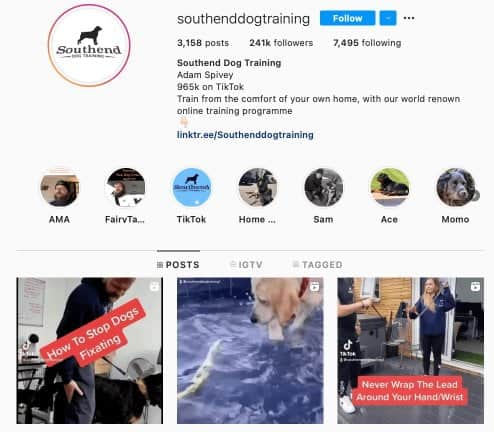
By partnering with the right influencer this way, Suburban-k9 can reach a broad audience and establish itself as a trusted authority in the obedience dog training space, ultimately driving results for its social media campaigns.
Developing A Creative Brief
A content brief is a detailed document that outlines the objectives and parameters of the collaboration and provides guidelines for influencers to follow your brand voice. So, while this isn’t necessary, it can help the influencer understand what they need to achieve to drive the desired results for your campaign.
6. Use User-generated Content
According to a recent survey, 79% of people say User-generated content (UGC) highly impacts their purchasing decisions, while only 13% say branded content has the same effect. This goes on to show just how influential UGC can be in building trust and credibility with your audience and why it’s such an essential part of a social media marketing strategy
You can think of user-generated content as any content, such as photos, videos, and reviews, that is created or shared by users of any social media platform, where users talk about a particular brand or product. Hashtags, mentions, and other tags are just one-way users can leverage user-generated content this way.
Here are some considerations to remember when using user-generated content:
Set Clear Guidelines
Set clear guidelines on the type of user-generated content you’re looking for, and make sure you communicate it with your audience. For example, you might want to specify the products or services you seek and what quality you expect. You can encourage high-quality content by setting clear guidelines and providing examples.
Encourage User-generated Content
It’s essential to encourage your audience to create and share user-generated content. You can ask for UGC in social media posts, run contests, or offer discounts. For example, you can encourage your audience to share photos or videos on Instagram stories of themselves using your products and then select a winner to receive a prize.
See the picture below of how Starbucks proposed a white cup contest, which led to millions of people participating in the challenge and increasing its sales.
Another excellent example is WriterAlpha, a company constantly looking for talented writers who can contribute to their platform. To encourage different writers to write for them, they can create a unique hashtag that writers can use to tag their submissions on social media.
This way, WriterAlpha can create a searchable archive of UGC that can be used to showcase the talent of their community. This can help build a community around WriterAlpha and encourage more writers to join and contribute.
The key is to make it easy for users to share their content, so provide clear instructions and use a specific hashtag like this one they can use to tag your business.
Engage With User-generated Content
To help build a sense of community around your brand, engage with social media users who create UGC by responding to their posts or thanking them for sharing. This helps build relationships with current customers and attract new ones to your brand.
Plus, featuring UGC on your social media channels can help showcase your products or services more authentically, allowing you to connect with your audience on a deeper level.
7. Analyze & Adjust
Testing and refining your social media marketing is crucial to adapt to the constant changes in social media. Essentially, this involves identifying areas for improvement and making changes to your social media tactics to achieve better results.
Metrics
To analyze your social media marketing, regularly monitor your metrics like engagement rate, conversion rates, reach, clicks, and follower growth to determine the performance of your campaigns and identify the areas that need improvement.
If your engagement rate is low, for example, you may need to improve the quality of your content or schedule posts at different times. Either way, with the help of developers, you can streamline these processes to ensure you have more time to focus on adjusting your social media strategy.
The key to remember is to experiment with different types of relevant content or test different ad formats to see which ones perform best for your company. Should you decide to hire outside help, they might use Invoice Templates for MS Excel when billing your for their services.
Final Thoughts on Social Media Strategies For Small Business
Social media can be a powerful tool to connect with your audience and grow your brand. By implementing these 7 proven social media strategies, you can effectively reach and engage your target audience and drive business growth.
Remember to start by defining your goals and audience, and then choose the social media platforms that best fit your business. From there, focus on creating high-quality social content, engaging with your audience, and measuring your results to continuously improve your social media strategy.
While social media can be overwhelming at times, with a well-planned and executed social strategy, it can become a valuable asset to your business. So, take the time to implement these strategies and watch your social media network and business grow.
If you’re looking for a platform to help you schedule social media updates at scale, you might want to check out Bulkly. With our social media management tools, you can automate your scheduling process, saving you time and effort. We also support multiple social media platforms and let you easily create and schedule content in bulk.
Our analytics dashboard gives insight into your social posts‘ performance, so you can continually improve your strategy. So, visit our website and start your free trial today.


